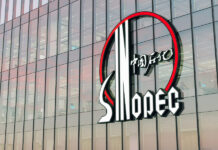In the past two years, more and more US-listed Chinese companies have chosen to return to China’s capital market due to the significant valuation differences between China and the US. The first step they need to take to return is the completion of privatization, which can be done in three ways – merger, tender offer and reverse stock split. This article explores the merger. A merger is when the acquiring entity, controlled by the controlling shareholders of the listed company or its affiliated parties, merges with the listed company directly so that the listed company becomes a private one controlled by the purchaser, while other non-affiliated shareholders exit the company upon receiving financial consideration for privatization.

MICHELLE JIN
百宸律师事务所合伙人
Partner
PacGate Law Group
For example, Focus Media announced its privatization notice on 13 August 2012. The privatization team consisted of its actual controller, Jiang Nanchun, as well as Carlyle, FountainVest, CITIC, Everbright and other investors. They first set up an acquisition system of a four-tier structure in the Cayman Islands and held Giovanna Acquisition (the acquiring entity) indirectly through Giovanna Group Holdings (the holding company).
It cost about US$3.82 billion for Focus Media to go private. The acquisition was conducted in both cash-for-stock and stock-for-stock, and investors in the acquiring entity used US$1.18 billion of their own funds and US$1.52 billion of debt financing from external banks to buy a small part of shares and options of the listed company – held by Jiang Nanchun and the second-largest shareholder, Fosun International – as well as all the shares and options of the listed company held by other non-affiliated parties. The holding company issued additional stocks worth US$1.11 billion to Jiang Nanchun and Fosun International to acquire the majority shares and options of the listed company.

After privatization, most Chinese companies dismantle the variable interest entity (VIE) structure and go public back in China. Focus Media returned to China’s capital market through a back-door listing of Hedy Holding by the end of 2015. Compared with its previous market value in the US – less than US$2.7 billion – the valuation of Focus Media at the time of its return to China reached RMB45.7 billion (US$6.97 billion). Compared with a tender offer, a merger is a more favorable way of privatization. It is more likely to be approved, and non-affiliated parties can be completely excluded after payment of a going-private consideration. However, there are uncertainties as well.
Voting mechanism of general meeting of shareholders. The merger proposal must be subject to the approval of a company general meeting of shareholders. The difficulty of getting the approval partly depends on the voting mechanism of general meetings in the location of the company’s incorporation. For Cayman companies, the proposal must be authorized and approved by shareholders representing two-thirds or more of the shares present, while for a Nevada or Delaware company in the US, affirmative votes by the majority of the outstanding shares with voting rights will suffice. Where the registered office of a listed company locates in Nevada or Delaware, it is quite possible that there are not enough affirmative votes by shareholders, the proposal may fail to get approval, or approval may take much more time.
Inspection by US Securities and Exchange Commission (SEC). The company must file a voting proxy statement with the SEC and accept inspection. The SEC may require explanations of related matters in the statement or its amendments, which may also take more time.

BEN CAI
百宸律师事务所律师
Associate
PacGate Law Group
Purchase price and litigation by minority shareholders. Minority shareholders may file actions against a privatization arising from dissatisfaction of the purchasing price, which will delay the transaction or increase its cost. For example, companies with a registered office in Nevada or Delaware may be sued by minority shareholders during the process of going private because the two states set very strict standards on due diligence of company directors, requiring them to be loyal to and fulfil their duty to all shareholders including minority ones. Local courts also pursue the principle of complete fairness with the transaction process and the purchase price.
The purchaser may propose the privatization acquisition together with a third party independent from the controlling shareholder and its affiliated parties, which may ensure the fairness of the transaction to some extent. Or it can be agreed in the agreement that the merger proposal requires affirmative votes by non-affiliated shareholders – other than the controlling shareholder and affiliated parties – representing a majority of the votes, and seeks balance of interest with minority shareholders through adjusting purchase price etc., based on the market and reaction of the minority shareholders.
[/ihc-hide-content]
Michelle Jin is a partner and Ben Cai is an associate with PacGate Law Group
北京市朝阳区东三环中路5号
财富金融中心55层5501室 邮编:100020
Suite 5501, 55/F, Fortune Financial Centre
5 East 3rd Ring Middle Road
Chaoyang District, Beijing 100020 China
电话 Tel: +86 10 6530 9989
传真 Fax: +86 10 6530 9980
电子信箱 E-mail:
mjin@pacgatelaw.com
www.pacgatelaw.com






















